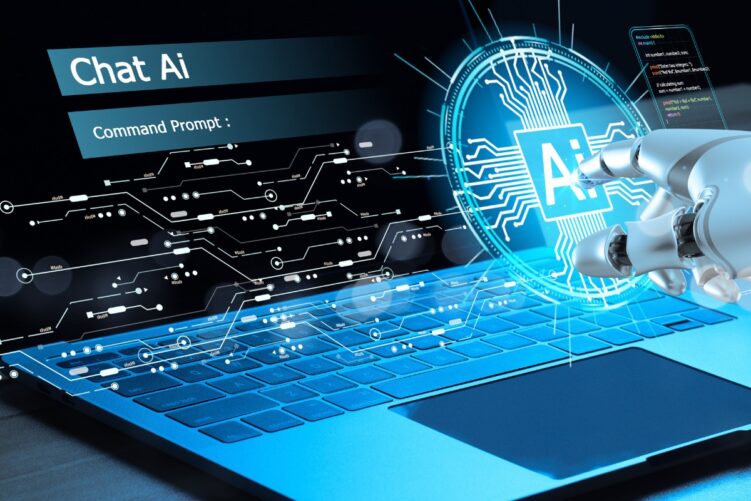How much can we trust what we read online? With AI shaping our digital landscape, the question of reliability has become more urgent than ever. Some say Artificial Intelligence is revolutionizing how we access knowledge, while others warn it’s leading us into a maze of misinformation. The truth, as always, lies somewhere in between.
Key Points
- AI is both a tool and a potential threat to reliable information.
- ChatGPT Zero helps detect AI-generated text.
- Ethical concerns about AI’s influence on information remain unresolved.
- Biases in AI models raise questions about their credibility.
- Human judgment remains critical in evaluating sources.
AI and the Question of Trust in Digital Sources

Imagine you’re scrolling through an article that seems insightful and well-researched, but how do you know if it was written by a person or an AI model? Tools like ChatGPT Zero offer a solution by detecting AI-generated text, helping users separate human-written content from machine-produced material. Such tools are essential as AI creates content at a scale and speed unmatched by human effort.
AI’s speed and efficiency are undeniable. It can churn out articles, blogs, and reports in seconds. The downside? Quantity doesn’t always guarantee quality. Artificial Intelligence can generate false or misleading material if the input data is flawed, and users may find it harder to distinguish fact from fiction.
Let’s not forget that trust in digital content depends on the human effort behind it. Without transparency about how AI operates or how it is used to create materials, trust becomes harder to establish. Tools like ChatGPT Zero act as a safeguard, but the responsibility doesn’t end there. Readers must also stay vigilant.
The Benefits of AI in Knowledge Sharing
Artificial Intelligence has revolutionized how knowledge is shared, making it more accessible than ever before. Its ability to gather, process, and present information quickly has transformed industries, from education to healthcare. Here’s where it truly shines:
- Efficiency in organizing content – Search engines powered by AI provide faster results and tailored recommendations.
- Language translation tools – Platforms like Google Translate bridge gaps, making knowledge available to non-native speakers.
- Educational support – Students now use AI-powered apps for personalized learning experiences.
For example, researchers once spent weeks sifting through journals to find relevant studies. AI now narrows that search to minutes. Platforms like PubMed use algorithms to categorize research, while AI-driven search engines provide summaries to save time.
But convenience often comes at a cost. In the rush to process data faster, some nuances can be overlooked, leaving important context behind. That’s where human expertise is still essential.
How Bias in AI Impacts Credibility

AI models are only as good as the data they are trained on. If the input contains biases, the output will too. This can lead to harmful stereotypes, exclusion of marginalized perspectives, and skewed narratives that mislead readers.
Here’s an example: imagine a news article summarizer trained on data that heavily favors one political ideology. The tool might unintentionally omit key points from opposing perspectives, resulting in biased reporting.
What can be done? Developers need to prioritize training Artificial Intelligence on diverse and balanced data sets. Readers should also question outputs that feel one-sided.
Fun fact: Did you know AI models have even been found to replicate gender biases, often suggesting stereotypical roles for men and women? This highlights the importance of monitoring not just what AI generates, but how it learns.
How AI Challenges Traditional Journalism
Journalism relies on credibility and trust. AI models can quickly summarize events, but they lack the nuance and context of human storytelling. In journalism, context is everything—machines cannot fully grasp the importance of background details or ethical reporting standards.
Some organizations now use AI to draft news articles, but the line between reporting and automation has blurred. Can we trust a news outlet if its process involves minimal human oversight? For example, automated systems might prioritize sensational headlines to maximize clicks, even if the full story isn’t properly vetted.
Human journalists still offer what machines cannot: accountability, empathy, and the ability to challenge powerful narratives. Without these, the purpose of journalism itself is at risk.
Why Human Judgment Still Matters
Machines are tools, not replacements for critical thinking. Even the most advanced AI cannot replicate human judgment in assessing credibility.
To safeguard reliable information:
- Verify sources before accepting claims.
- Use tools like ChatGPT Zero to identify machine-generated text.
- Cross-check data with trusted outlets.
Humans bring context, empathy, and accountability—traits that no algorithm can replicate. For example, a human editor might catch inaccuracies in a story or question a source’s reliability. AI, by contrast, processes data but doesn’t understand its implications.
Steps to Navigate AI-Generated Content Responsibly

How do you stay informed without falling prey to AI’s pitfalls? Follow these steps:
- Use detection tools – Platforms like ChatGPT Zero can flag AI-produced material.
- Cross-reference information – Compare content across multiple sources for consistency.
- Develop media literacy – Learn to identify biased or misleading narratives.
- Prioritize credible authors – Focus on content from experts with proven credentials.
The more aware readers are of the risks, the better equipped they’ll be to navigate today’s digital world.
Ethical Challenges in AI-Driven Knowledge Production
The ethical dilemmas surrounding AI cannot be ignored. Who holds responsibility when AI produces harmful or inaccurate content? Is it the developer, the user, or society as a whole?
Consider the rise of deepfake technology, which uses AI to create realistic but false audio or video clips. This has already been used to spread disinformation, tarnish reputations, and manipulate public opinion.
Developers must implement ethical frameworks to ensure AI applications are used responsibly. Transparency about how AI tools work and their limitations can also go a long way in building trust.
Fun Fact
Did you know AI has been used to compose music, write poetry, and even create paintings? While impressive, critics argue that AI lacks true creativity—it can mimic styles and patterns but doesn’t bring the emotional depth or originality of human artists.
Balancing Optimism and Caution
AI can help solve real-world problems, but it can also create new ones. Ethical concerns, transparency, and accountability are critical in determining its role in shaping knowledge.
The future of AI is a balancing act. It requires both innovation and oversight to ensure it enhances rather than undermines the integrity of information sources.
What do you think—can we find that balance, or will AI always be one step ahead of our efforts to control it?




